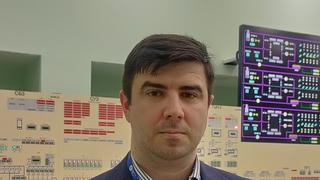Are Indian research organisations/universities ready to enter the new ‘era’ of electronic research administration (ERA)?
Probably yes, if fast-paced developments in the development and evolution of ERA are any indication.
NICHE SPACE
ERA is the process through which the administrative and business side of research funds/grant activity is automated via electronic communication.
This is a niche space purveyed by specialist engineers, programmers and developers.
ERA drives government-funded research projects in the US where the system is well developed, says Sabari Nair, technical architect to Coeus, a cradle-to-grave award management tool.
Massachusetts Institute of Technology (MIT) owns the intellectual property rights over Coeus.
“If it can work in the US, there is no reason why it shouldn’t here as well,” says Boston-based Nair, who runs Polus Software specialising in Coeus implementation, customisation and hosting.
It has development centres in Bangalore and Thiruvananthapuram.
RINGS A BELL
Sabari Nair says ERA might just ring a bell in contemporary Indian context; e-governance programmes initiated here could be surprise beneficiaries.
The suitably rich workflow associated with the system could be easily tweaked to support the e-governance programme, he says.
Institutions such as Indian Space Research Organisation, Indian Institute of Science and other seats of research could also benefit.
For instance, they can use the system to support student management or even take care of routing of funds/grant for research.
But why should this rules-based and compliance-enforcer system evolved in the US research/grant ecosystem largely for local consumption be of any appeal to India?
OPEN SOURCE
This has to do with the release on June 1 this year of Kuali-Coeus, a combine of pedigree products as open source software and therefore available free.
Kuali is a foundation formed by a group of US universities, including MIT, Indiana University and Cornell University, among others, while MIT and the Coeus consortium developed predecessor Coeus. At least 75 universities have licensed the product from MIT.
“Over the next 18 months, we are looking at moving all these schools to Kuali-Coeus,” Sabari said. “We plan to rollout Kuali-Coeus to non-US markets as well, including India.”.
While Sabari Nair was the technical architect of Coeus, Polus Solutions that he founded is already a Kuali commercial affiliate and works closely with the Kuali Foundation.






Comments
Comments have to be in English, and in full sentences. They cannot be abusive or personal. Please abide by our community guidelines for posting your comments.
We have migrated to a new commenting platform. If you are already a registered user of TheHindu Businessline and logged in, you may continue to engage with our articles. If you do not have an account please register and login to post comments. Users can access their older comments by logging into their accounts on Vuukle.